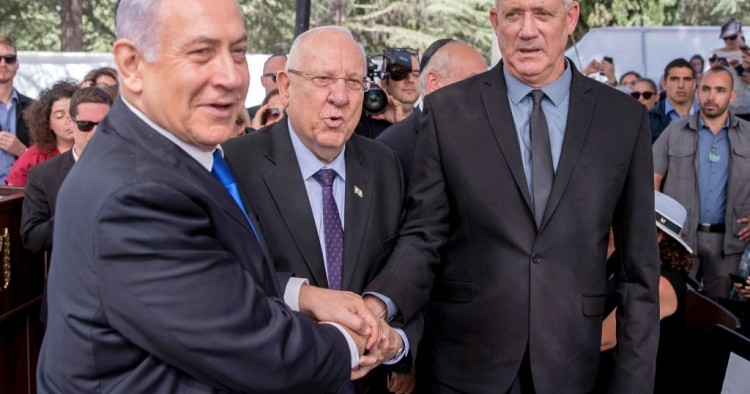Last Wednesday, Prime Minister Benjamin Netanyahu was cast another political lifeline. Reuven Rivlin, the Israeli president, gave Netanyahu the first chance to form a coalition government; formally, he has 28 days to do so. Netanyahu’s task will prove difficult. September’s do-over election did not provide the legally-embattled prime minister the desired outcome; Likud came second in the elections held on Sept. 17, gaining 32 seats. Nevertheless, the strength of his pact with right-wing and orthodox parties (totaling 55 Knesset seats) put him one seat ahead of his main electoral competitor –– Kahol Lavan –– to be granted the first attempt at a governmental formation.
In line with Rivlin’s proposition, the prime minister is currently engaged in efforts to form a broad unity government with Kahol Lavan –– despite prior rejections of such a partnership by both parties. According to Rivlin’s suggestion, Netanyahu and Benny Gantz would each serve two years as prime minister, as Yitzhak Shamir and Shimon Peres did in the mid-1980s. In the initial two-year period, Gantz, under Rivlin’s proposed framework, would be afforded prime ministerial authority as “interim prime minister.” Initial talks between the two parties, which together hold 65 seats, ended without any agreements. Negotiations are, according to news reports, set to continue on Wednesday, after the Jewish holidays and on the same day that Netanyahu’s pre-indictment hearing on fraud and bribery charges is slated to start. The prime minister’s power –– and freedom –– is closely tied to the outcome of this legal process: as prime minister, Netanyahu would not be required to step down upon indictment.
Further negotiations between Kahol Lavan and Likud are not expected to prove successful. Kahol Lavan –– particularly Yair Lapid and Gabi Ashkenazi –– still appears committed to dethroning Netanyahu. The Joint List’s partial endorsement of Gantz is equally premised on this realization. Likud members, meanwhile, are not likely to break rank and abandon their leader; neither is it probable that the party will abandon the bloc of right-wing and religious parties that would hamper the creation of Kahol Lavan’s intended liberal government. Likud’s acceptance of the Rivlin framework, as such, is primarily aimed at affording blame to Kahol Lavan upon the expected breakdown of talks.
Grace Wermenbol is a Non-resident Scholar at MEI who specializes in the contemporary geopolitics of the broad Middle East and North Africa (MENA) region.
Photo by YONATAN SINDEL/AFP/Getty Images
The Middle East Institute (MEI) is an independent, non-partisan, non-for-profit, educational organization. It does not engage in advocacy and its scholars’ opinions are their own. MEI welcomes financial donations, but retains sole editorial control over its work and its publications reflect only the authors’ views. For a listing of MEI donors, please click here.













